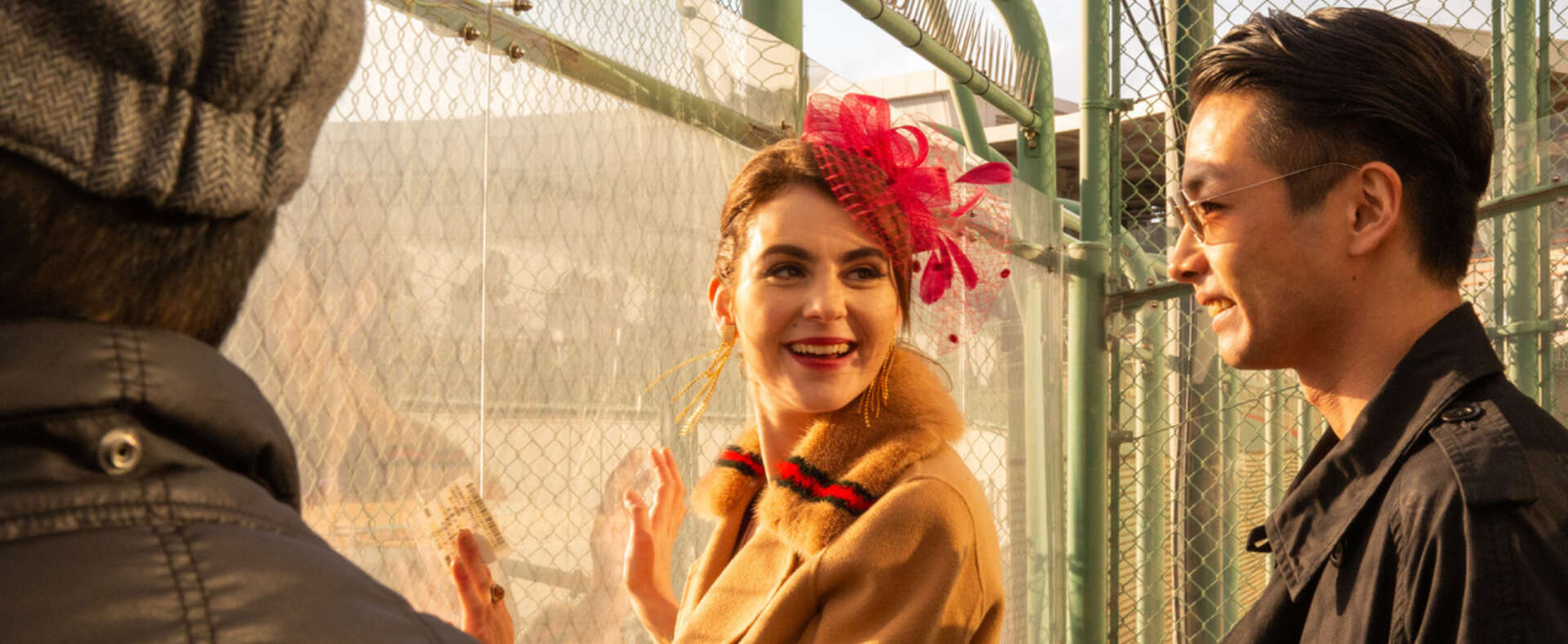WRITTEN BY: Annika Pham
Daniel Dencik’s upcoming film produced by Haslund Dencik Entertainment stars Victoria Carmen Sonne, Mikkel Boe Følsgaard, Mirai Moriyama and Kaho Minami.

Daniel Dencik’s upcoming film produced by Haslund Dencik Entertainment stars Victoria Carmen Sonne, Mikkel Boe Følsgaard, Mirai Moriyama and Kaho Minami.
Currently in early editing stage after nine shooting days in Northern Norway and 21 in Osaka, Japan, Miss Osaka is based on an original script by Dencik and Sara Vedde Jønsson, loosely inspired by Michelangelo Antonioni’s 1975 classic The Passenger.
The film is a fable about identity, focusing on Ines (Victoria Carmen Sonne) and her boyfriend Lucas (Mikkel Boe Følsgaard). At a hotel in the Norwegian wilderness, they encounter the half-Japanese tourist Maria to whom both are drawn. One evening the two women disappear together. An opportunity opens up for Ines who is looking for a drastic change. The young Danish woman kills her past and invents herself a new future in Osaka, Japan. She embarks on the paths of love as a hostess girl where identities dissolve, but slowly, she is captured by her own past. According to the creators, the film investigates modern humanity and the desire to escape, both the outside world and one’s inner self.
For Dencik and Haslund who are reunited for the third time after the documentary The Expedition to the End of the World and feature film Gold Coast, Miss Osaka is an epic filmic and production collaboration that started in 2015 when they did their first research trip in Japan.
For the first ever co-production between Denmark and Japan, the duo gradually overcame cultural and red tape hurdles and found a solid local co-production partner in C&I Entertainment. “They believed in our vision and were eager to collaborate with foreign partners after the success they had with their latest film Asako 1 & II which screened in official competition in Cannes last year,” said Haslund.
The producer said the collaboration with his Japanese partners was based on trust and hard work. Challenges included replacing some Danish functions to Japanese crew, as well as cutting the Japanese production team by 30% of what is the standard for a Japanese film crew. The film was eventually shot on budget, with “super locations and fantastic acting performances". “Now we have a huge responsibility to make a final film that can also work in Japan,” notes Haslund who adds: “Miss Osaka is for sure not a normal production, and we hope this will shine through when we reach the screens in the spring 2020.”
The film is co-produced by Japan’s C&I Entertainment and Norway’s Rein Film, with support from the Danish Film Institute. Øst for Paradis will handle the Danish theatrical release.
Three questions to Daniel Dencik:
What inspired you to make this movie?
DD: Firstly, Japan itself - and especially the mystic allure of the city of Osaka. Since I was a kid I just loved the sound and the look of that word: OSAKA. It has attracted me all my life. So at some point, I had to go there. If Tokyo is Japan's face outwards, Osaka is more like the face inwards or the soul of Japan.
Secondly, there’s a movie from 1975 called Professione: Reporter [The Passenger] by Michelangelo Antonioni. That film is special to me, and Miss Osaka is very loosely inspired by the atmosphere and parts of the storyline in this movie.
After Gold Coast, is Miss Osaka another exploration of one person’s identity and ability to adapt to a different culture and clashing environment?
DD: Yes, that’s probably a valid chain of thought. I generally like to embrace the perspective of the outsider. When a person is detached from his or her own safety zone and all comfort vanishes, one’s actions becomes kind of transparent. The intentions of the outsider have a naked quality. When you operate outside the realms of your habitual pattern you are constantly inventing and reshaping your existence.
How was it to film in Japan with a part Japanese cast and crew?
DD: It’s wonderful to work in Japan. I love the fact that every crew member is a perfectionist. And at the same time people are so very discreet, cool and respectful. It must be the smoothest place in the world! It is a country that seems perfectly made for human beings. There has been paid attention to every detail of human existence. Many good people in the film industry warned Michael and I of filming there, but I am glad we didn’t listen to any advice. We did however spend a lot of time casting inside Japan and I think it payed off. The Japanese cast is the best I could ever ask for. Our three main Japanese actors are among the finest of their generation. Mirai Moriyama, Junko Abe and Kaho Minami are really extraordinary talents. I think that goes for the Danish cast as well, Victoria Carmen Sonne and Mikkel Boe Følsgaard - the finest of their generation.”